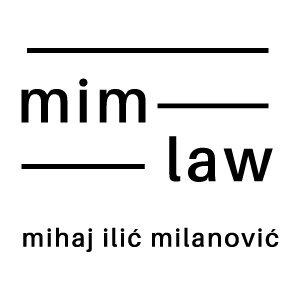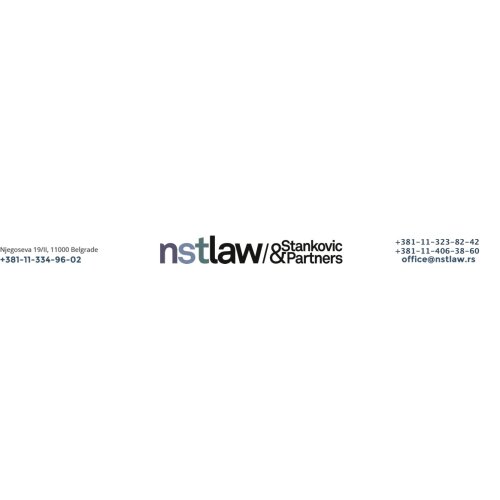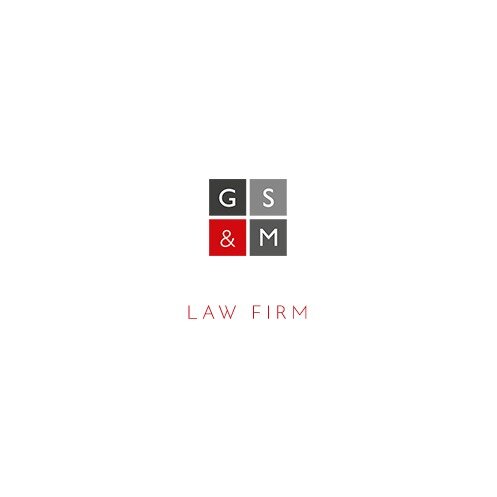Best Landlord & Tenant Lawyers in Serbia
Share your needs with us, get contacted by law firms.
Free. Takes 2 min.
Free Guide to Hiring a Real Estate Lawyer
Or refine your search by selecting a city:
List of the best lawyers in Serbia
About Landlord & Tenant Law in Serbia
Landlord and tenant law in Serbia is primarily governed by the Law on Obligations, which is a comprehensive legal framework addressing various types of civil contracts, including lease agreements. These regulations ensure that both landlords and tenants have their rights and responsibilities clearly outlined to promote fair rental practices. In Serbia, lease agreements can be made for an indefinite or definite period, with specific rules governing each type. Additionally, the law sets standards concerning the maintenance of properties, modification of rent, notice periods for termination, and dispute resolution.
Why You May Need a Lawyer
There are several situations where a lawyer's expertise is invaluable in landlord and tenant disputes. Firstly, when drafting or reviewing a lease agreement, a legal professional can ensure that the contract complies with local laws and appropriately addresses specific concerns. Secondly, if issues arise such as eviction disputes, non-payment of rent, property repairs, or negotiation of lease terms, a lawyer can provide guidance and representation. Lastly, in case of litigation or when navigating complex legal procedures, having an experienced lawyer can protect the interests of either party involved.
Local Laws Overview
Key aspects of local landlord and tenant law in Serbia include:
- Lease Agreements: They must be in writing if the lease is for a period exceeding one year, detailing terms such as rent, duration, conditions of termination, and rights/responsibilities of each party.
- Rent Control and Adjustment: While the market primarily dictates rent amounts, significant changes may require renegotiation and mutual consent.
- Maintenance Responsibilities: Landlords are generally responsible for major repairs, whereas tenants must keep the property in good condition and report any issues.
- Termination Procedures: Both parties must adhere to the agreed notice periods set within the lease agreement or stipulated by law, typically ranging from 30 to 90 days.
- Security Deposits: It is customary to require a security deposit, usually equivalent to one month’s rent, which must be returned at the end of the tenancy if all conditions are met.
Frequently Asked Questions
What is the typical duration of a lease agreement?
Lease agreements typically range from six months to a year, with the possibility of renewal or extension based on mutual agreement.
Can a landlord increase the rent during the lease period?
Rent increases during the lease period must be in accordance with the terms specified in the lease agreement or following mutual consent between the parties.
What happens if a tenant fails to pay rent?
Failure to pay rent can lead to eviction proceedings. However, it's advisable to seek legal mediation first to resolve payment issues amicably.
Are tenants allowed to make modifications to the rental property?
Any modification or renovation requires the landlord's written consent unless otherwise stated in the lease agreement.
What should be done if a landlord refuses to carry out necessary repairs?
Tenants should formally notify the landlord of the needed repairs. If ignored, tenants can seek legal redress to compel the landlord to fulfill their maintenance obligations.
Is a verbal lease agreement legally binding?
Although verbal agreements can be binding for short-period leases, it is highly recommended to have written contracts for clarity and legal enforcement.
What is the process for eviction in Serbia?
Eviction requires formal legal proceedings, beginning with a notice period as stipulated by the lease, followed by court action if the tenant does not vacate voluntarily.
Can a security deposit be used as the last month’s rent?
Typically, a security deposit is not intended to cover the last month’s rent; it serves as security against potential property damages.
How can a lease agreement be terminated before its expiration?
Early termination should be mutually agreed upon and documented, with specific conditions outlined in the lease being met.
Are there any tenant protection laws against unfair eviction?
Yes, Serbian law provides protections against unlawful evictions, ensuring due process is followed and tenants' rights are respected.
Additional Resources
To further assist, consider consulting the following resources and organizations:
- The Ministry of Construction, Transport, and Infrastructure for updated information on housing policies and regulations.
- Local municipal offices, which can provide documentation and guidelines on landlord-tenant law.
- Legal aid services and NGOs in Serbia that specialize in housing and rental issues, offering support for those unable to afford legal assistance.
Next Steps
If you require legal assistance in a landlord or tenant matter, your first step should be to consult with a qualified attorney specializing in property law. They can provide tailored advice and representation that addresses your specific situation. Additionally, gathering all related documents such as the lease agreement, payment records, and any correspondence with the other party will be necessary for a comprehensive legal evaluation.
Lawzana helps you find the best lawyers and law firms in Serbia through a curated and pre-screened list of qualified legal professionals. Our platform offers rankings and detailed profiles of attorneys and law firms, allowing you to compare based on practice areas, including Landlord & Tenant, experience, and client feedback.
Each profile includes a description of the firm's areas of practice, client reviews, team members and partners, year of establishment, spoken languages, office locations, contact information, social media presence, and any published articles or resources. Most firms on our platform speak English and are experienced in both local and international legal matters.
Get a quote from top-rated law firms in Serbia — quickly, securely, and without unnecessary hassle.
Disclaimer:
The information provided on this page is for general informational purposes only and does not constitute legal advice. While we strive to ensure the accuracy and relevance of the content, legal information may change over time, and interpretations of the law can vary. You should always consult with a qualified legal professional for advice specific to your situation.
We disclaim all liability for actions taken or not taken based on the content of this page. If you believe any information is incorrect or outdated, please contact us, and we will review and update it where appropriate.
Browse landlord & tenant law firms by city in Serbia
Refine your search by selecting a city.

















